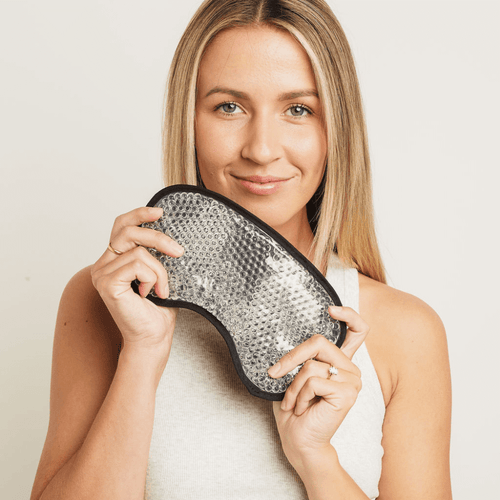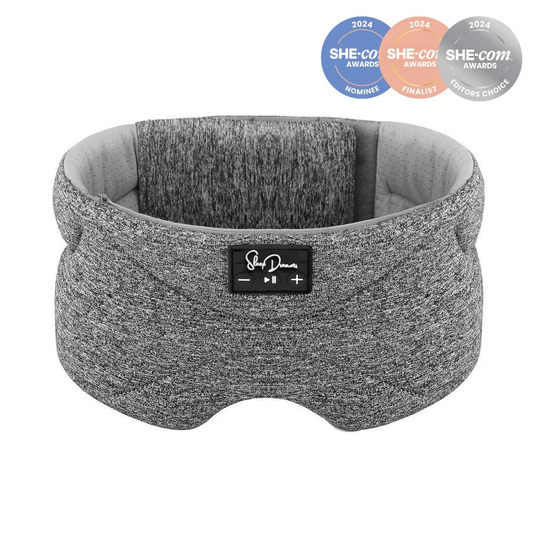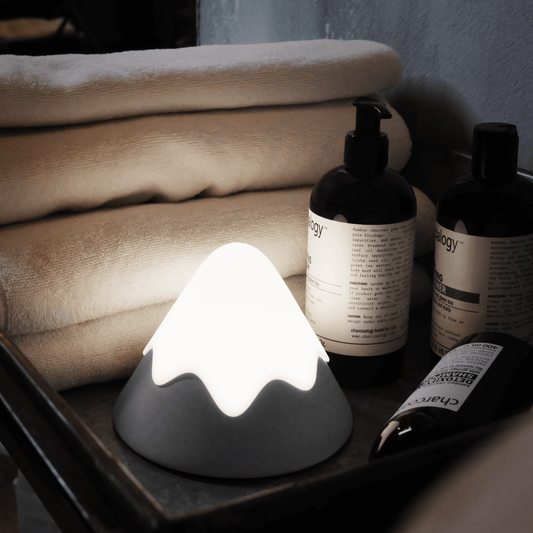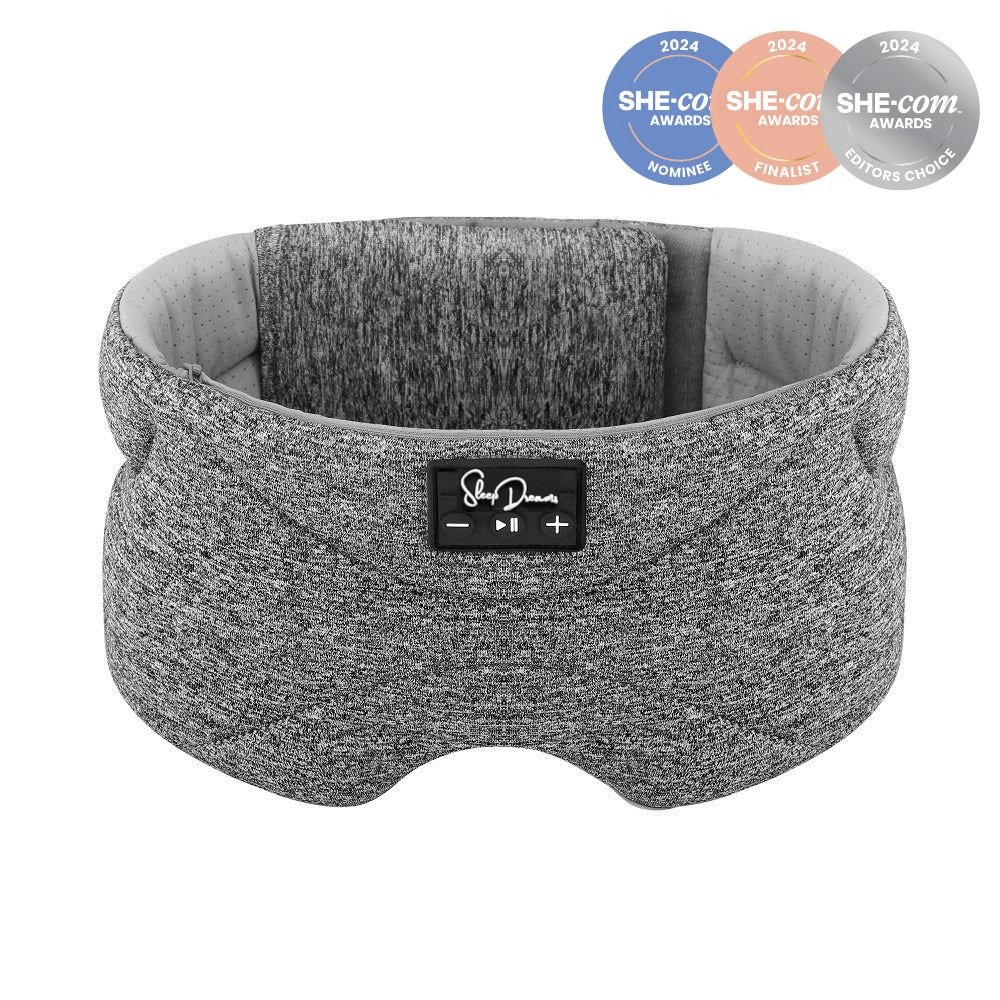Can cupping therapy actually improve your sleep? The world of alternative medicine has long been a source of both skepticism and fascination, and cupping, with its roots in ancient practices, has garnered attention for its potential health benefits. While initial anecdotal evidence seems to suggest a positive link between cupping and improved sleep, we're here to take a closer look at the scientific basis behind this phenomenon. So, if you've ever wondered whether those circular marks left by cupping sessions might be the key to unlocking a more restful night's sleep, join us as we explore the research, theories, and expert insights to uncover the truth behind the claims.

What is Cupping?
Cupping is an ancient alternative therapy that has been in practice for thousands of years, it is widely used in Chinese medicine. It involves placing cups, usually made of glass or silicone, on your skin and creating a vacuum to suction the skin upwards into the cup. The suction created by the cups loosens the muscles and gets the blood flowing to reduce tension.
There are different types of cupping therapy, the most popular being dry and wet cupping. While dry cupping uses create suction using a rubber pump, wet cupping involves small cuts on the skin to remove 'toxins' from the body. Although with most methods an oil is normally used on the skin to help glide across the skin.
As a result of cupping sessions, you may see circular marks left on individuals with more prominent bruising or markings that tend to fade fairly quickly but are not harmful in any way.
Does Cupping Help You Sleep?
So as we know you guys all care about sleep and so the big question is, does cupping help you get a more restful sleep?
Cupping is known for its ability to relieve pain, tension and promote relaxation. Indirectly, this can lead to a significant improvement in sleep. The stress and strain we experience during the day could result in muscle tightness and pain which impacts our sleep cycle.
Cupping therapy is an effective way to promote relaxation, which is essential in improving the quality of sleep. Research shows that relaxation techniques like massage and cupping have a positive impact on the sleep quality of individuals, which results in them being more refreshed in the morning. This research article by Senol Dane references their findings in sleep and cupping.
Improvement of Blood Flow
Cupping increases the circulation of blood and breaks up the adhesion's that form in your muscle tissue that lead to tension. The suction of the cups helps the body's circulation to release the toxins that can sometimes build up over time. The better blood flow ensures that oxygen and nutrients reach the body's muscles more effectively. The increase in blood flow also stabilises the body's hormonal balance, leading to better sleep quality.
-
Vacuum Effect: The primary technique used in cupping involves creating a vacuum or negative pressure within the cup. When the cup is applied to the skin, the air inside the cup is removed, creating suction that pulls the skin and underlying tissues upward. This suction effect helps to widen the blood vessels in the area, allowing for increased blood flow.
-
Vasodilation: The negative pressure from the cupping technique causes the blood vessels near the skin's surface to dilate or expand. This expansion leads to improved blood flow as the vessels accommodate a higher volume of blood. Increased blood flow brings more oxygen, nutrients, and immune cells to the targeted area, which can aid in tissue healing and relaxation.
-
Mechanical Stimulation: The gentle pulling and stretching of the skin and underlying tissues caused by cupping stimulate sensory receptors in the skin. This mechanical stimulation triggers a response from the body's nervous system, leading to the release of substances like endorphins and other neuropeptides. These substances can contribute to pain reduction and relaxation, further promoting improved blood circulation.
-
Lymphatic Flow: Cupping therapy also affects the lymphatic system, which is responsible for removing waste products and toxins from the body. The suction from the cups can help to encourage lymphatic drainage, assisting in the removal of metabolic waste and excess fluids from the tissues. This can reduce swelling and congestion, allowing for better blood flow.
-
Microcirculation Enhancement: Cupping has been shown to influence microcirculation, which refers to the blood flow within the smallest blood vessels (capillaries). The suction from the cups may help to open up capillaries and improve the exchange of nutrients, gases, and waste products between the blood and surrounding tissues.
Reducing Muscle Pain
Cupping helps to ease muscle tension that can cause pain when you are trying to sleep. This alternative therapy targets muscle aches and joint pain in a way that is similar to massage. Rather than focusing on direct soothing through cushion support, it works on the muscles. This will help you get better sleep if you are dealing with pain issues.
-
Release of Fascial Restrictions: Cupping therapy is thought to affect the fascia, the connective tissue that surrounds muscles and other structures in the body. The negative pressure from the cups can help release adhesions and tension in the fascia, allowing for greater flexibility and improved muscle function.
-
Stretching of Muscle Tissues: As the skin and tissues are drawn into the cup, it creates a gentle stretching of the underlying muscles. This stretching can help alleviate muscle tightness and discomfort.
-
Nervous System Response: The suction from cupping can stimulate sensory receptors in the skin and underlying tissues. This stimulation may trigger a relaxation response in the nervous system, leading to a decrease in muscle tension.
-
Pain Reduction: Cupping therapy is often used to target pain points and sore areas. By promoting blood circulation and releasing tension, cupping can alleviate pain, which in turn allows muscles to relax.
-
Promotion of Parasympathetic Nervous System Activity: Cupping may activate the parasympathetic nervous system, often referred to as the "rest and digest" system. This can counteract the effects of the sympathetic nervous system, or the "fight or flight" response, leading to a sense of relaxation throughout the body.
How often should you do a cupping session to see benefits?
The frequency of cupping sessions to see benefits for sleep can vary depending on several factors, including individual response, the severity of sleep issues, and the type of cupping technique used.
Generally, experts suggest that consistency is key when it comes to achieving optimal results. For those exploring cupping as a potential aid for better sleep, it's recommended to start with a series of sessions close together, such as once a week for a few weeks.
This initial phase can help the body adapt to the therapy and potentially bring about noticeable improvements in sleep quality. After the initial phase, some individuals might find that they can space out the sessions to every two weeks or once a month, while others may benefit from more frequent sessions. It's important to listen to your body's signals and consult with a qualified healthcare practitioner who is experienced in cupping therapy to determine the best frequency for your specific needs. Remember, the journey to improved sleep through cupping is individual, so patience and consistent monitoring are essential.
Can I do cupping myself at home?
One intriguing avenue that has gained attention is the use of portable electric cupping devices, which allow individuals to bring the benefits of cupping therapy into the comfort of their own homes. These innovative devices offer a modern twist on the traditional practice, utilising gentle suction to stimulate blood flow and promote relaxation.
Investing in a portable electric cupping device empowers individuals to take charge of their wellness journey by incorporating cupping sessions seamlessly into their schedules. The flexibility to choose when and where to perform these sessions can be particularly advantageous for those with busy lifestyles or limited access to professional therapists. Whether it's a pre-bedtime ritual or a moment of relaxation during the day, the convenience of these devices opens up new possibilities for enhancing sleep quality and overall well-being. However, it's important to approach these devices with caution and seek guidance from healthcare professionals to ensure safe and effective use.
In summary, cupping is an alternative therapy that is gaining popularity because of its positive impact on muscle tissue tension, pain relief and relaxation. Its positive effects on the body's musculature lead to a decrease in pain and stress and therefore indirectly helps in providing a better quality sleep. If you're battling with chronic pain or difficulty sleeping, cupping is a great potential solution to try. Before undergoing any cupping treatment, it's best to consult your local practitioner to discuss the benefits and potential side effects.
Remember, to get the most of your sleep you need to take care of your mind and body, and cupping might just be the solution you're looking for.





















